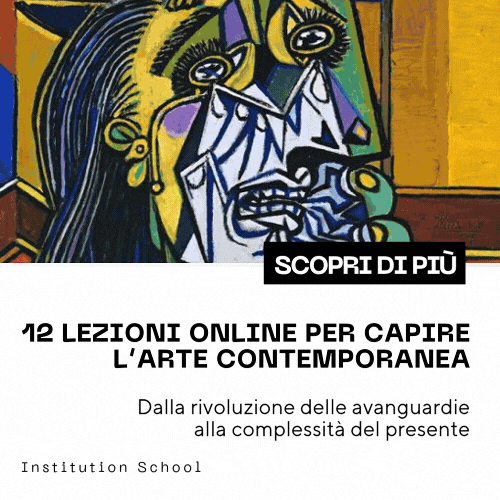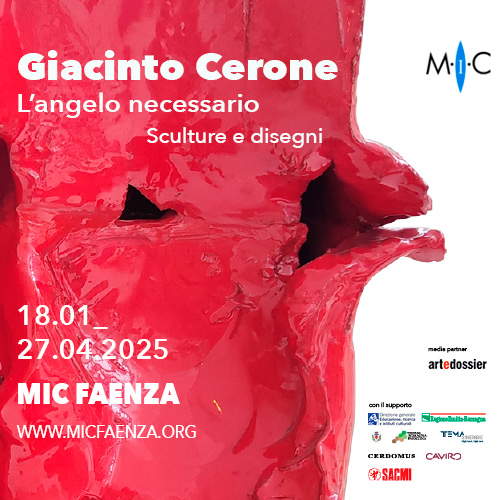The director of the Villa Giulia National Museum: beauty is also being responsible
Following the measures tightening measures needed to stop the Covid-19 coronavirus infection, “online” initiatives by Italian museums are multiplying. This morning, the director of the National Etruscan Museum of Villa Giulia in Rome, Valentino Nizzo, with a live Facebook call for the public to take advantage of the closure of museums as an opportunity to continue to be passionate about culture by using modern means of communication. “We all need to be responsible, attentive and follow the provisions we have been given,” he said, adding that “cultural institutions must be close to citizens to remind them how much beauty (and let’s try to use this term not rhetorically) surrounds us. Beauty is also enshrined in history, in stories, in our ability to transmit memory but also to use our memory to be more responsible and make sure that this moment lasts as little time as possible, that soon we can return to our habits.” Not only that: beauty, for Nizzo, is also “human beauty in our loved ones, in our neighbors, in our friends to whom we must pay the utmost attention because each of us can be dangerous.” So, the director’s advice is to make better use of remote communication systems “to continue to be passionate about all that we sometimes miss and do not appreciate.”
On the occasion of his live broadcast (which can be reviewed at this link, Nizzo read and commented on a passage from Book VII of Titus Livy’s Ab urbe condita, in which the Roman historian recounts how the Roman theater came into being during a plague. “A sensational passage,” Nizzo called it, “perfectly consistent with what is going on, one of those passages that drive historians and archaeologists crazy because it is chock-full of useful and interesting information describing the origin of traditions or essential artistic moments such as the birth of theater in fourth-century Rome, a passage that describes events that date back 2385 years, to be exact they date back to 365 B.C. Rome had just overcome the terrible scourge of the Gauls who had come to sack and set fire to the city and was about to become the leading power in our peninsula and soon after in the whole Mediterranean. It is a passage that deserves to be read today to distract you, to cause us to think about something else, or for the curiosity that we must always have about everything around us, making the most of the means of communication and information that we have.”
Below is the entire excerpt read by the director of Villa Giulia.
"Of then under the consulship of Lucius Genucius and Quintus Servilius, when neither sedition nor war disturbed the peace, which was a very rare thing for Rome, so that one was never free from fear and danger, a violent pestilence broke out. They say that a censor, a curule aedile, and three tribunes of the plebs died, and that many other victims occurred in proportion as well among the people. But what made that plague memorable above all was the death, as painful as it came late, of Marcus Furius. For he was a truly unique man in every circumstance, distinguished in peace and war before he went into exile, most illustrious during his exile, both because he was mourned by the city which after it was taken implored his help while he was far away, and because restored to the homeland, together with himself he happily restored the homeland itself to life. For twenty-five years then, which many more he lived, he lived up to the title that came to him from such glory, and he was deemed worthy to be called the second founder after Romulus of the city of Rome. That year and the following in which Caius Sulpicius Petitus and Caius Licinius Stolone were consuls, the plague lasted. Nothing therefore was done that is worthy of remembrance, except that to implore the favor of the gods a lettisterio [sacrifices dedicated to pagan deities] was then celebrated for the third time after the foundation of the Urbe, and since the violence of the epidemic did not diminish either by human measures or by divine aid, having fallen prey to superstition, it is said that among other means of appeasing the wrath of the celestials, scenic ludi were also instituted, a novelty for that warlike people. For that matter, it was also a novelty of no great importance, like almost all things in the beginning, and foreign to boot. With no singing whatsoever, no gestures to counterfeit the singing, dancers brought over from Etruria, dancing to the sound of the flute, performed graceful movements in Etruscan fashion. Young people then began to imitate them, exchanging at the same time mottos in crude verse, and the movements matched the voice, so the novelty was welcomed and became more and more established by custom. Destitute performers, because the dancer was called by the Etruscan word ister, were given the name ’histrion’. And these did not, as in the past, exchange crudely improvised and coarse verses, but performed satires rich in melodies, with singing now adjusted to the sound of the flute and with harmonized movements. Some years later Livy [Andronicus], who first dared, taking his cue from the satires, to work out a subject drama, and who was also naturally an actor in his compositions, since his voice had arched from too many encores being demanded of him, reportedly asked for leave, placed before the flutist a young man so that he sing, and he recited his part with much more lively movement, for he was not at all impeded by the necessity of employing his voice. They then began to sing accompanying the gestures of the histrions, and to the voice of the histrions was left only the dialogue. But since with this system of representation one moved away from laughter and free mockery, and amusement had gradually turned into art, the youth, having left the recitation of dramatic compositions to the histrions, resumed according to the ancient custom to exchange antics expressed in verse, hence what were later called ’esòdi’, and which were combined especially with the atellane, a genre of entertainment learned from the Oscans, which the youth jealously guarded, not allowing it to be profaned by the histrions. Hence the custom remains that atellane actors cannot be removed from their tribe and perform their musical service as if they were strangers to the dramatic art. Among the beginnings of other institutions it seemed to me that I should also mention the earliest origin of theatrical performances, so that it might be clearly seen from what sober principles we have come to the present excesses, which are hardly permissible in sumptuous kingdoms."
“But nevertheless, the introduction of the ludi, instituted to avert the divine curse, did not free souls from superstitious fear, nor bodies from evil; nay, since the overflowing of the Tiber had flooded the circus, cutting the performances in half, this fact, as if the gods were now hostile and despised the means used to appease their wrath, aroused immense terror. Therefore, while Cnaeus Genucius and Lucius Aemilius Mamercus were consuls for the second time, since the search for expiatory remedies afflicted the souls more than the bodies were afflicted by evil, the elders are said to have recalled how a pestilence had once been arrested by the posting of the nail performed by the dictator. Prompted by such superstition, the Senate ordered that a dictator be elected for the posting of the nail. Lucius Manlius Imperius was elected, who in turn elected Lucius Pinarius master of chivalry. It is an ancient law written in archaic letters and words that the supreme magistrate, on the ides of September, should drive in the nail. It was posted on the right side of the temple of Jupiter Optimus Maximus, on the side where the chapel of Minerva is located. They say that this nail, since writings were rare at that time, was the sign indicative of the number of years, and that the law was consecrated to Minerva’s chapel since Minerva’s invention is the number. In Volsinii, too, according to Cincio, a scrupulous speaker of such documents, nails indicative of the number of years can be seen planted in the time of Norzia. The consul Marcus Horatius dedicated the temple of Jupiter Optimus Maximus according to the provisions of that law one year after the expulsion of the kings. The ceremony of posting the nail then passed from the consuls to the dictators, because the greater was their authority. Left out later that custom the institution seemed to merit even in itself the appointment of a dictator.”
 |
| The director of the Villa Giulia National Museum: beauty is also being responsible |
Warning: the translation into English of the original Italian article was created using automatic tools. We undertake to review all articles, but we do not guarantee the total absence of inaccuracies in the translation due to the program. You can find the original by clicking on the ITA button. If you find any mistake,please contact us.





























